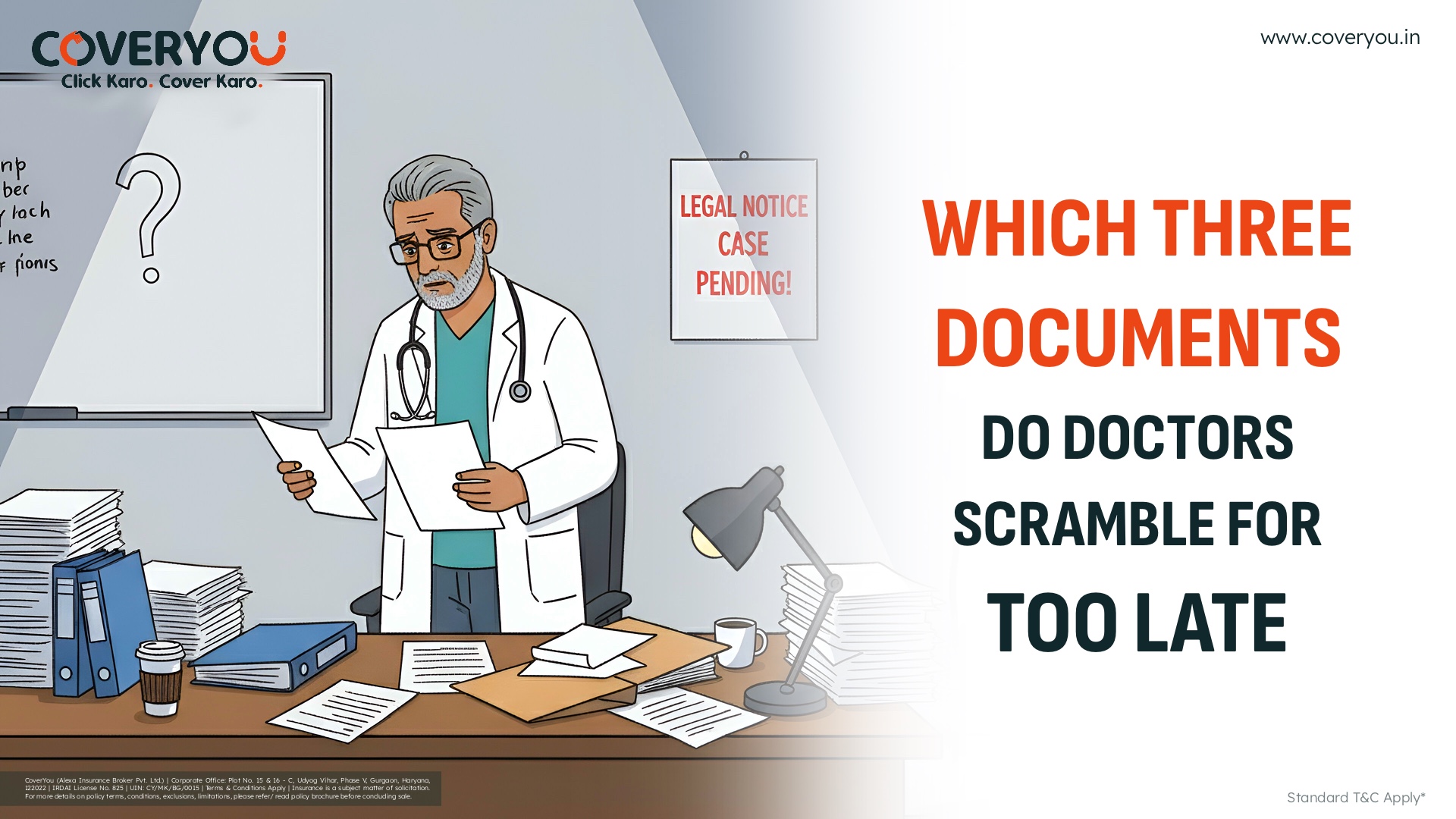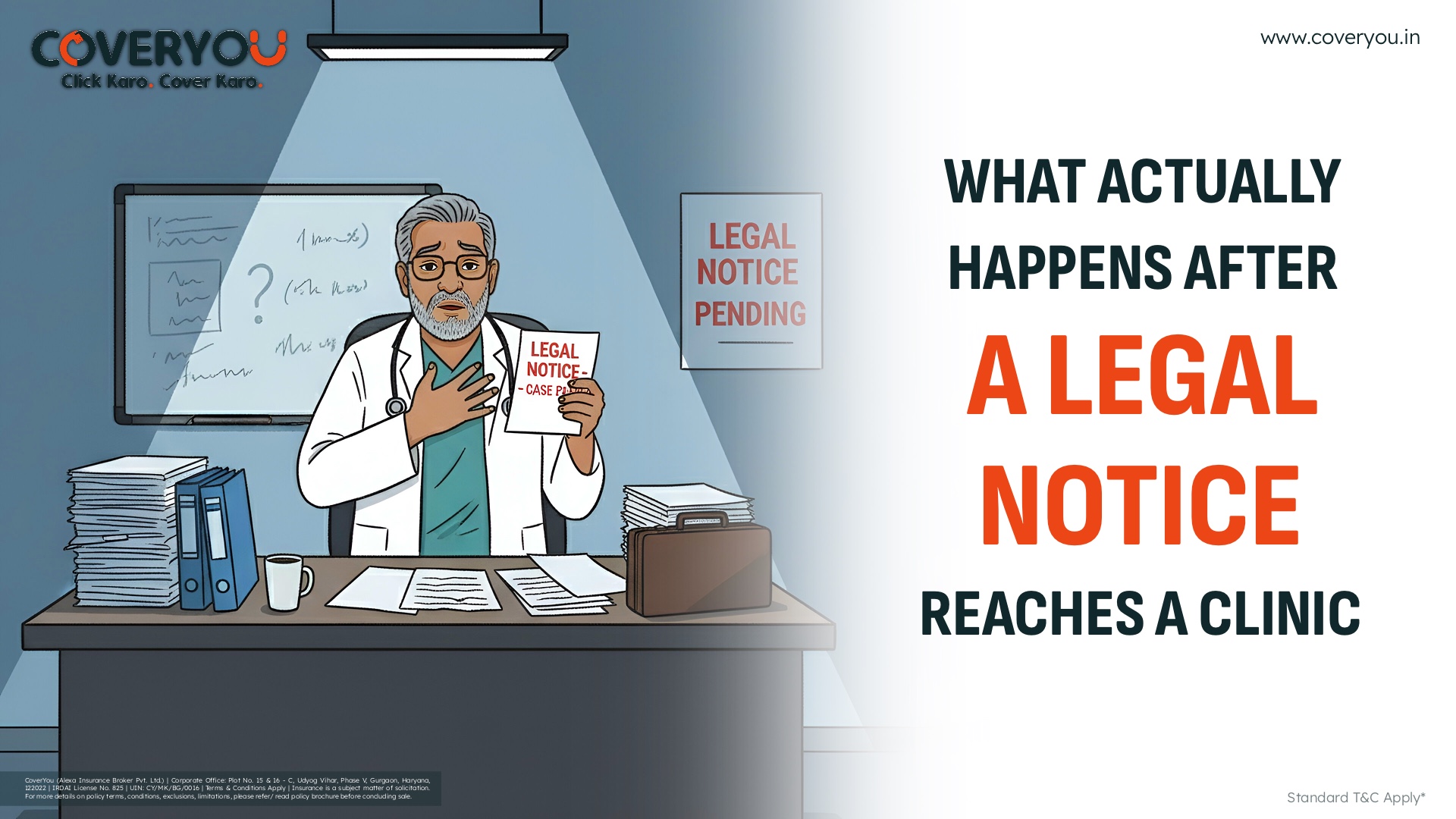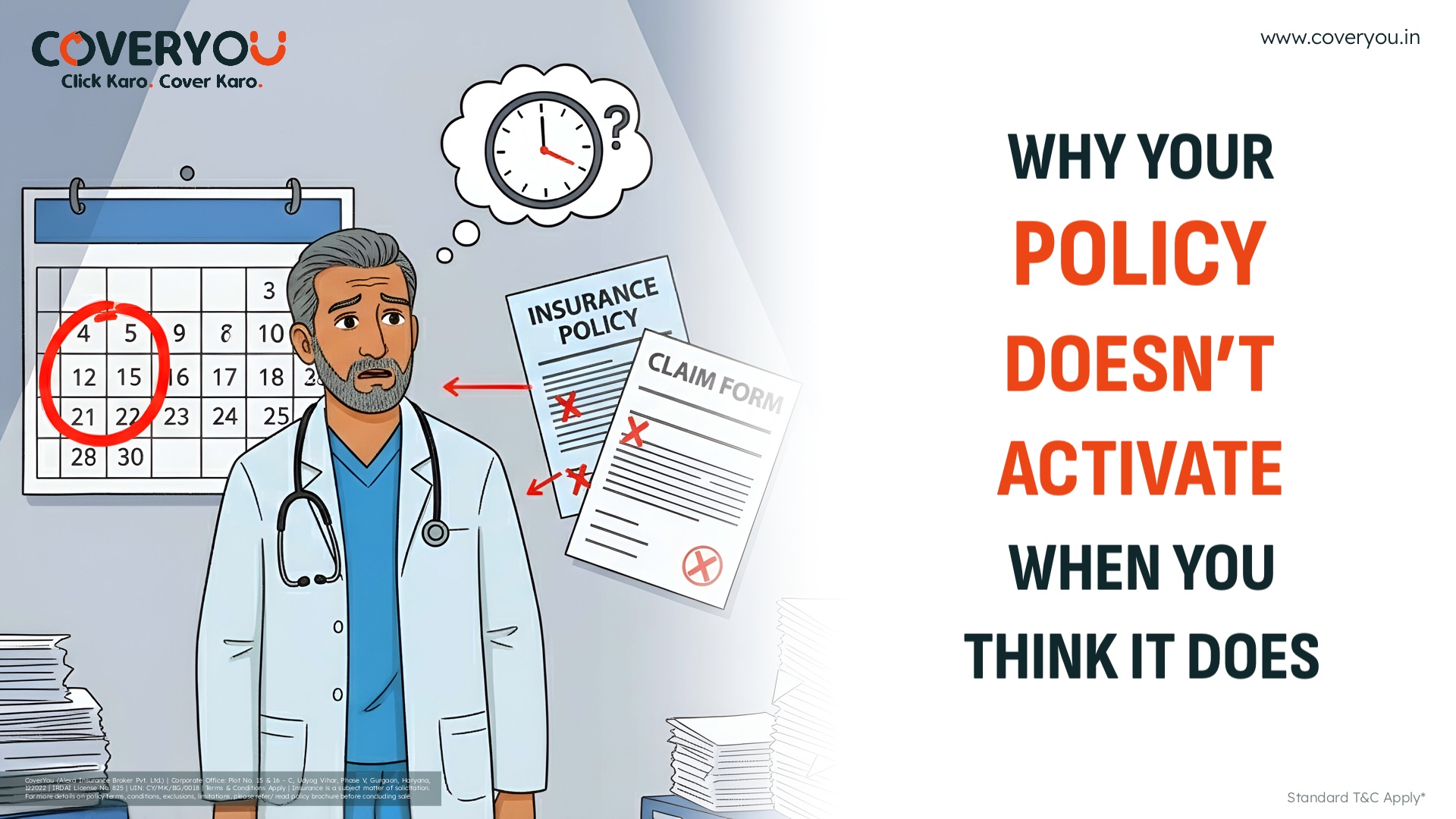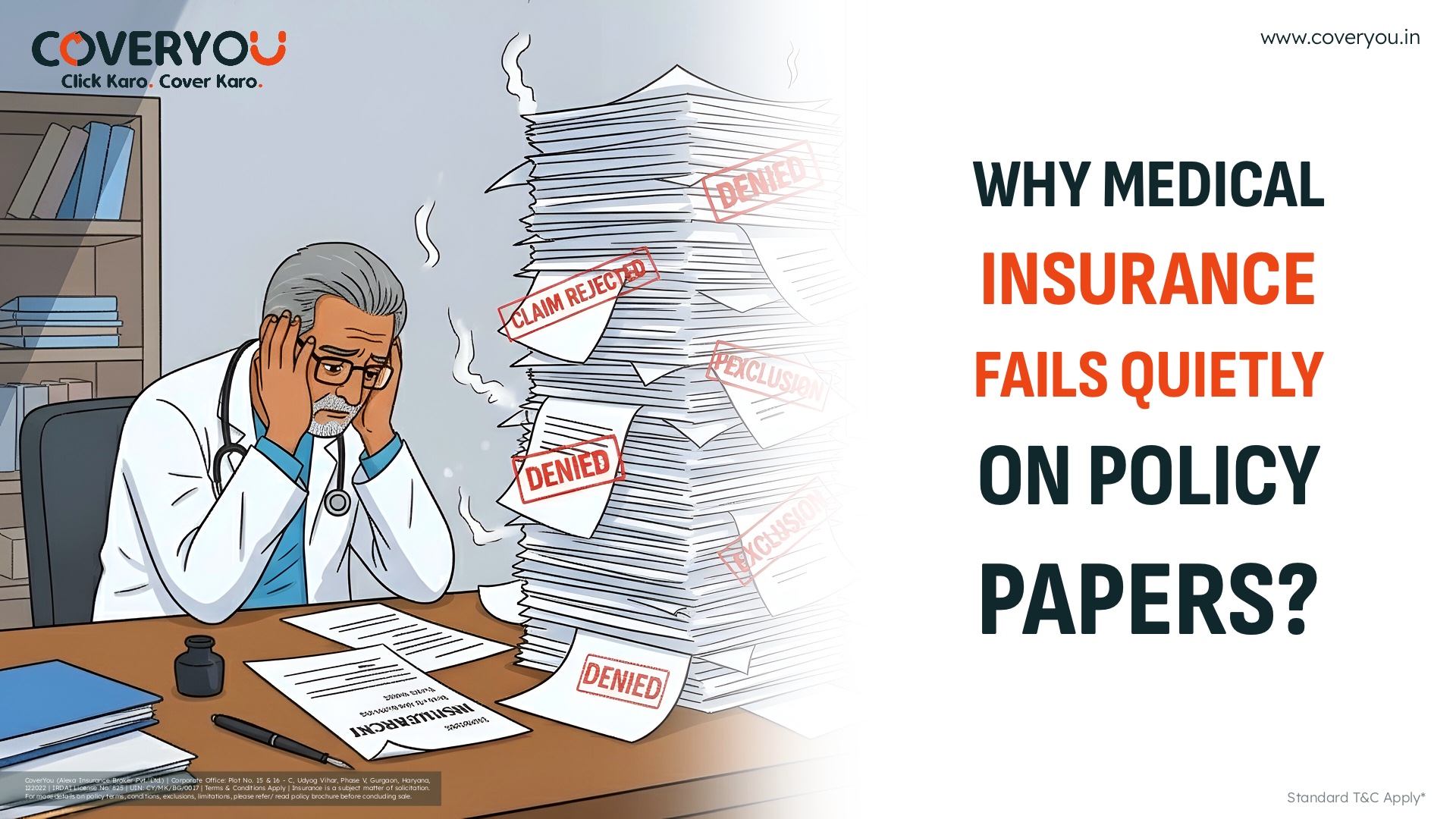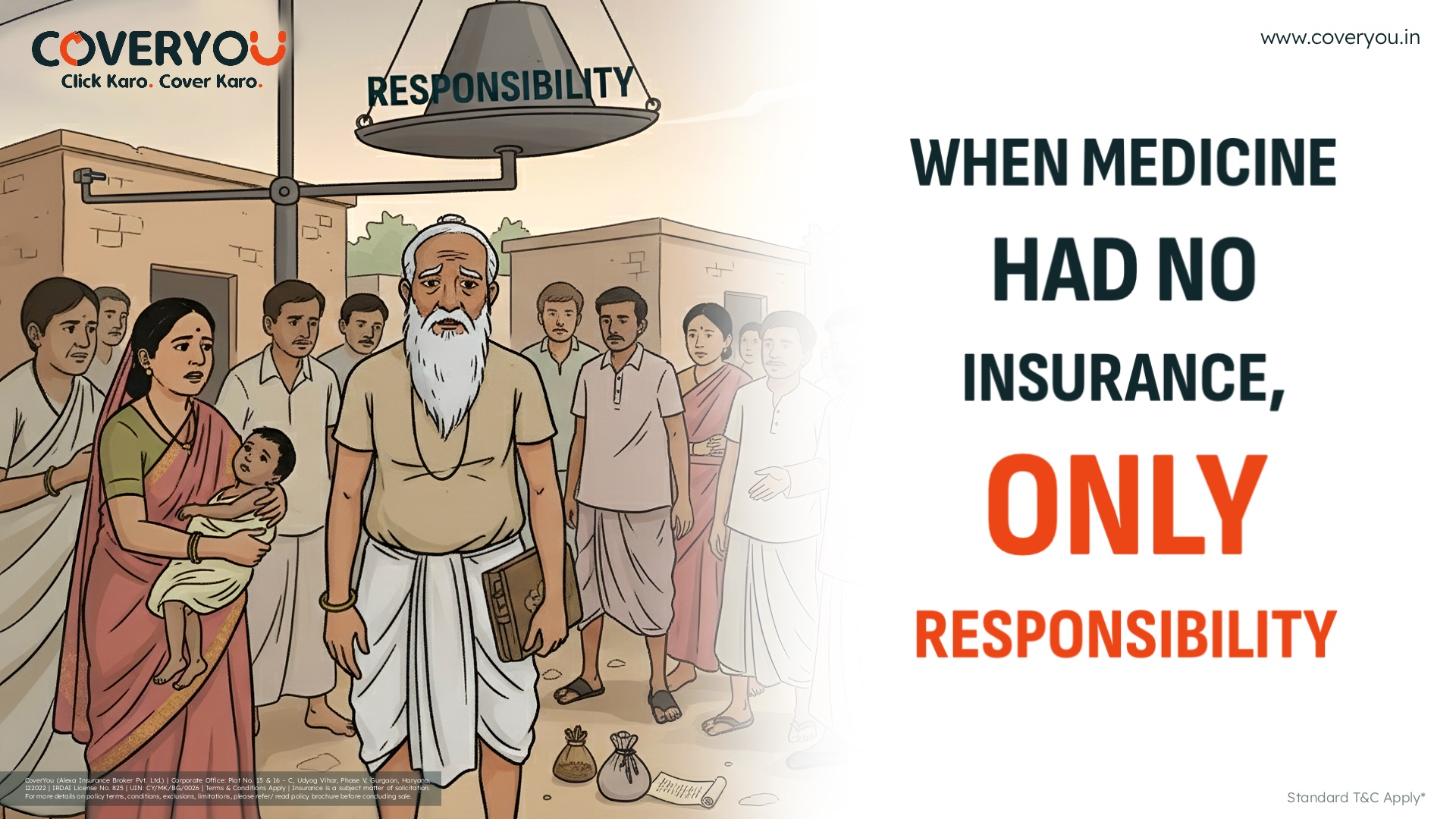Introduction
According to a survey conducted in 2016 by the National Law University, Bengaluru, there was a steep rise of 400% in cases related to medical negligence in consumer court. Although only 10-15% of cases are genuine—in which doctors are found guilty—the remaining 85% involve fabricated or misunderstood cases, in which doctors are left to defend themselves. The need to be financially and legally insured is thus gaining importance in this scenario; it is necessary to protect the doctors if they are sued for mistakes and negligence. According to a poll by the Maharashtra Association of Resident Physicians, the following factors are responsible for the growth in the number of medical negligence cases:
- 30% of cases are due to the patient’s expectations vs reality in treatment, despite paying huge medical expenses they couldn’t get satisfaction.
- 20% of cases are caused by patient anxiety related to treatment.
- Only 15% are genuine cases of error or negligence.
- Because it was inconvenient, permission was obtained from the family before conducting certain procedures or switching hospitals.
- Inadequate diagnosis and therapy documentation.
Table of Contents
- Professional indemnity insurance claim process
- Documents required for the claim process
- Cases for which you cannot claim professional indemnity insurance
- Companies offering professional indemnity insurance in India
- Advantages of buying professional indemnity insurance
- Frequently asked questions
Professional Indemnity Insurance Claim Process
In a situation where you have to claim professional indemnity insurance, you should be aware of the steps to be followed:
- Contact and make them aware of the situation to the insurance provider as soon as possible.
- In case you receive any legal notice, you should submit the document to the insurance company as soon as possible.
- Submit the filled-in claim form along with other asked documents.
- After an investigation, if the insurance company finds it a valid case, it will approve the claim, or else will reject it.
- If you do not receive satisfactory justice with the case, you can go to a court of law.
Information you should provide
- Copies of any correspondence received like emails, letters, file notes or any legal documents such as a Writ.
- The date of your first awareness.
- The identity of the claimant and the identity of any other party that might have been involved in the case.
- A brief outline of the problem.
- The potential value of the claim.
Documents required for the claim process
The documents required for filing a claim in case of any eventuality are:
- The claim form was completed.
- Legal notice, if served by the client
- Registration certificate of professionals
- Certificates for institutions like hospitals
- Details about the insured are needed to determine the extent of the money loss.
Cases for which you cannot claim Professional Indemnity Insurance
Professional Indemnity Insurance does not cover certain cases and situations. These might go against their insurance policy. Some of these exclusions are:
- Bankruptcy
- Damage to ruin the reputation
- Terrorism and war damage
- Abuse of substances like alcohol and drugs while offering services
- Infringement of trademarks, copyrights and patents
- Fines and penalties
- Criminal activities or intentional negligence.
Companies offering Professional Indemnity Insurance in India
With people becoming more aware of their rights and duties, professional indemnity insurance is becoming more popular with professionals. The companies offering professional indemnity insurance in India are listed below:
- Bajaj Capital
- Oriental Insurance
- United India Insurance
- ICICI Lombard
- Reliance General Insurance
Advantages of buying Professional Indemnity Insurance
Professionals who are dealing with clients always run the risk of getting into some trouble. Patients also fall under the category of customers; dissatisfied customers may raise complaints, and when a lawsuit is filed, it will lead to indemnity consequences apart from mental agony and the defamation of specialists. If the patient wins the case, the court may order the provider to pay a large sum as indemnity or a fine, causing financial hardship for professionals. The following are the advantages of this insurance:
- Covers the prerequisites of different proficient services and professionals
- Offers extensive coverage against various types of risks
- Covers legal costs and other expenses
- Indemnity insurance can be claimed by professionals
Frequently asked questions
Q1. What is the process for claiming professional indemnity insurance?
Ans. Professional indemnity insurance is designed to protect professionals from financial loss resulting from claims made against them by clients or third parties alleging professional negligence or errors and omissions. If you need to claim your professional indemnity insurance policy, here are the general steps to follow:
- Contact your insurance provider
- Provide documentation
- Investigate the claim
- Respond to the claim
- Payment
Q2. What are the necessary documents required to file a claim on professional indemnity insurance?
Ans. Some of the common documents that may be required when filing a claim on professional indemnity insurance include:
- Notification of claim
- Policy documents
- Proof of insurance
- Evidence of the claim
- Correspondence with the claimant
- Evidence of damages
- Legal documents
Q3. What is the time frame to claim professional indemnity insurance?
Ans: The time frame to claim professional indemnity insurance can vary depending on the specific terms and conditions of the policy.
Q4. Can a claim be made if the doctor is no longer practising or if the policy has lapsed?
Ans. The ability to make a claim if a doctor is no longer practising or if the policy has expired is determined by the particular circumstances and the terms of the policy.
- If a doctor no longer practises, making a claim against them may be more difficult if they are no longer insured or if their insurance coverage has expired. However, if the doctor was insured at the time of the incident, a claim against their insurance policy may still be feasible, even if they are no longer practising.
- If the policy has lapsed, it indicates that it is no longer in effect and that coverage may be unavailable. In this situation, filing a claim under the policy may be impossible.
- To determine whether a claim can be made, it is critical to review the terms and conditions of the insurance policy in issue and, if necessary, seek legal advice.
Q5. What are the implications of making a false claim on professional indemnity insurance?
Ans. Making a false claim on Professional Indemnity Insurance can have serious implications, both legally and financially.
Legally, making a false claim on Professional Indemnity Insurance is considered fraud and can result in legal action being taken against the individual or business that made the claim.

